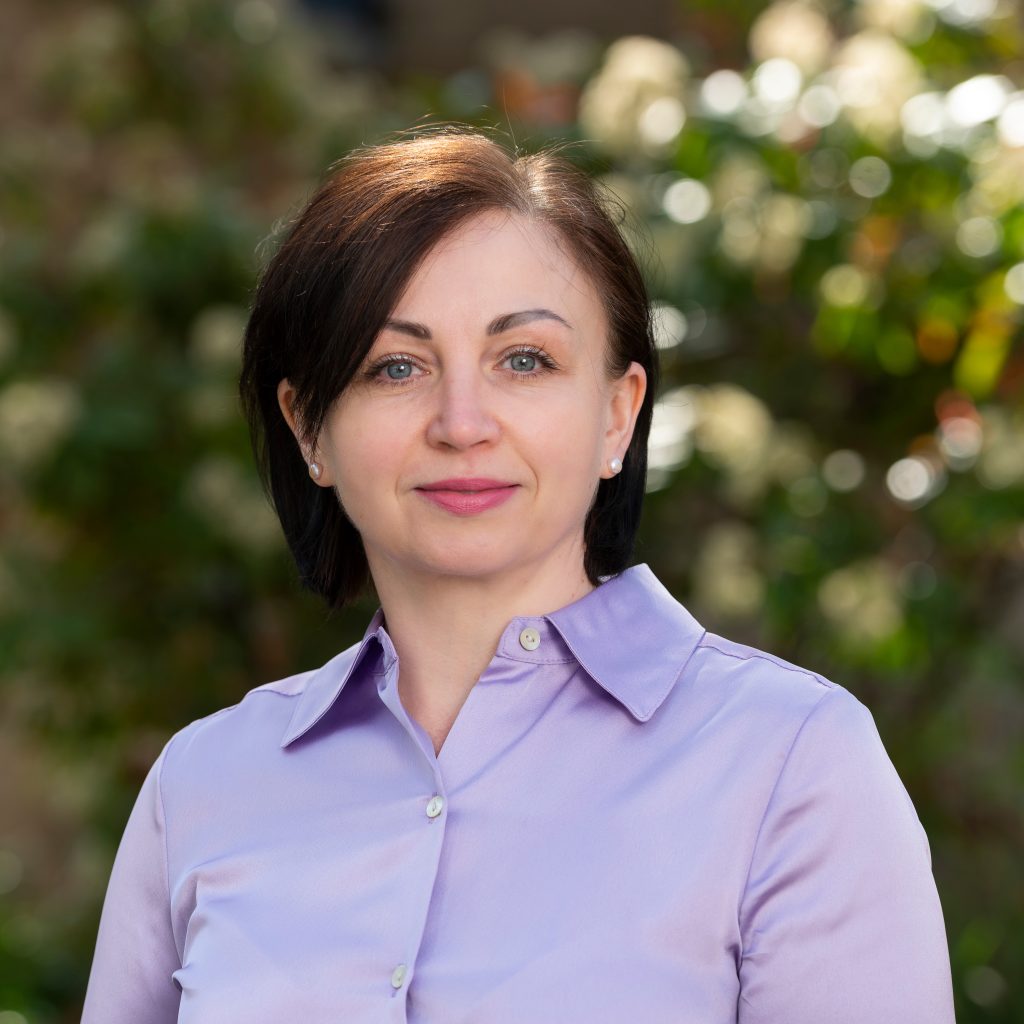Dr. Nadiya Ivanenko is an Honorary Norham Fellow at the Department of Education, University of Oxford. Her research interests include higher education, citizenship linguistics, language identity, cultural studies.
Nadiya was a Chevening scholar and Postgraduate researcher at the Department of Education, University of Oxford (2003-2004). After receiving PhD in Comparative Linguistics from Kyiv National Linguistic University (2008), Nadiya worked as an Associate Professor of the Germanic Languages and Teaching Methodology Department, Faculty of Ukrainian Philology, Foreign Languages and Social Communications and Vice Dean of the Faculty of Foreign Languages, Central Ukrainian State University, Ukraine.
Nadiya was engaged in diverse international educational programmes, research internships and collaborative projects: UNESCO project ‘Education as a Humanitarian Response’; American-Ukrainian project ‘Education for Democracy’; British Council Mobility Grant ‘Internalizing Higher Education in Ukraine’; ERASMUS+ project ‘Innovative Approach to Promotion Teaching Excellence, Bayreuth University, Germany. She had numerous international internships such as at the Open Society Institute, Hungary; Department of Educational Programmes at Shakespeare’s Globe, UK; Durham University, UK; Retraining in the Field of Teaching Excellence, Bayreuth University, Germany. Ukrainian Academic Support Scheme, University of Cambridge (2022) and Visiting Research Fellowship, University of Oxford (2022-2024) demonstrate her dedication to cross-disciplinary engagement and internalization of academic perspectives, contributing to the collective advancement of knowledge and promoting academic excellence.






